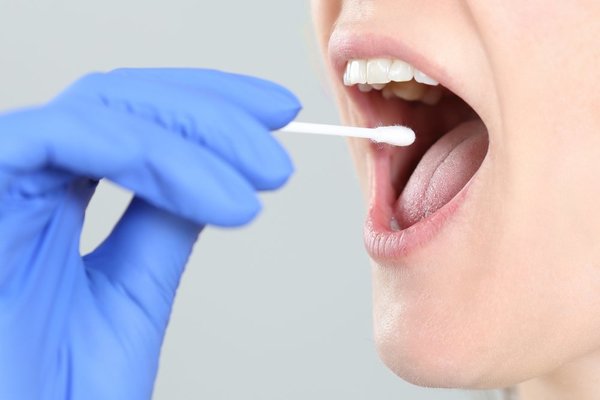Having sensitive teeth can cause severe pain! You’re not alone if you’ve ever cringed while sipping a hot tea or biting into an ice cream cone. Sensitive tooth pain is a common issue that many people face. The good thing is that many effective ways to get relief quickly exist.
The research offered valuable insights into practical remedies for sensitive teeth by investigating various clinical approaches and treatments. A special toothpaste that has potassium nitrate, sodium monofluorophosphate, and nano-hydroxyapatite, combined with antioxidants such as phloretin, ferulic acid, and silymarin, was found to lessen significantly tooth pain from sensitive dentin. This improvement happened within just two days and continued over two weeks.
The Academy of General Dentistry reveals that approximately 40 million individuals across the United States confront varying tooth sensitivity.
Arvada Dental Center offers a wide range of top-quality dental services led by experienced dentists. Their expertise shines in addressing teeth sensitivity issues, using innovative methods for lasting relief. The center handles dental problems, prioritizing patient education for long-term oral health. Arvada Dental Center’s commitment to patient care extends beyond just treatments. They prioritize educating patients about proper oral hygiene practices.
This article explores easy methods to soothe sensitive tooth pain without complicated jargon.
Gentle Brushing Technique
How you brush your teeth counts. A toothbrush with soft bristles can prevent further complexity to your delicate teeth. Brushing your teeth gently and circularly rather than aggressively rubbing is advisable. Harsh brushing can wear away enamel and expose sensitive areas. A gentle brushing technique keeps teeth and gums healthy.
Desensitizing Toothpaste
One of the most accessible solutions is switching to a desensitizing toothpaste. These toothpastes are specially formulated to provide relief for sensitive teeth. They contain compounds that help block pain signals and protect exposed nerves. Simply use the toothpaste as you would with a regular one, and you may notice a reduction in sensitivity over time.
Abstain From Acidic Foods And Drinks
Foods and drinks having high acidity levels can wither the tooth enamel. The weakened tooth enamel is more prone to sensitivity. Citrus fruits, sodas, and even some sports drinks fall into this category. Minimize your intake of these items to help protect your teeth. If you consume acidic drinks and foods, It is recommended to rinse your mouth with water afterward to aid in neutralizing the acids. Avoid coffee and tea overconsumption to prevent the worsening of sensitivity issues.
Soft Toothbrush And Flossing
A soft toothbrush is another mild switch in your routine that can make a significant difference. Stiff bristles can damage enamel and aggravate sensitivity. Alongside gentle brushing, don’t forget to floss regularly. Proper oral hygiene can prevent gum problems that contribute to sensitivity.
Saltwater Rinse
A natural remedy used for ages is a saltwater rinse. Add half a spoon of salt in lukewarm water. Gargle with it, and swirl it in your mouth for at least 1 minute before spitting. Saltwater is helpful, as it reduces inflammation and soothes the discomfort of sensitive teeth.
Avoid Teeth Grinding
Grinding your teeth, especially at night, can lead to enamel erosion and increased sensitivity. Mouthguards during sleep assist in protecting your teeth from biting forces. Mouthguards are available at stores and can also be customized on order by dentists.
Over-the-Counter Pain Relievers
Consider intake of over-the-counter pain relievers if the pain becomes too much. Common OTC-prescribed medication includes ibuprofen or acetaminophen. Always follow the proper dosage. It is advised to consult your doctor if you have doubts about using these medications.
Visit Your Dentist
If your sensitive tooth pain persists or aggravates, seeking medical attention from a dentist is recommended. They can point out the underlying problems of your sensitivity and suggest appropriate medical advice. Sometimes, sensitivity can be a sign of more severe dental issues that require professional attention. Arvada Dental Centre’s knowledgeable dentists employ innovative techniques and treatments to alleviate discomfort related to sensitive teeth.
Some Instant Prescriptions
There are many quick combinations that might help alleviate tooth sensitivity pain at home are listed below:
| Natural Remedies | Benefits |
| Warm and Cold Compress | Mash a garlic clove to form a paste and use it on sensitive areas. Garlic possesses antimicrobial properties. This aids in decreasing pain and irritation of teeth. |
| Green Tea Mouthwash | Apply a warm or cold compress to the inflamed tooth or gums for interim pain ease. A warm compress can ease inflammation, while a cold compress can numb the nerves and reduce discomfort. |
| Garlic Paste | Soak a cotton ball in clove oil and lightly rub it on the sore teeth. Eugenol in Clove oil carries a natural tranquilizing effect that gives instant relief from pain for a short time. |
| Clove Oil Application | Soak a cotton ball in vanilla extract to treat sensitive teeth and place it on inflamed areas for 2-3 minutes. Repeat this process as necessary for relief. Vanilla extract has pain-relieving properties. |
| Hydrogen Peroxide | Brew a cup of green tea and let it cool. It works as an organic mouthwash. Green tea constituents can alleviate inflammation and relieve hypersensitivity of teeth. |
| Turmeric | To make a mouthwash, substitute two caps of 3 % hydrogen peroxide with equal warm water. Hydrogen peroxide, as a mouth rinse, promotes gum healing and reduces inflammation. |
| Capsaicin | Capsaicin can be administered as a topical gel or used in a mouth rinse. While there might be an initial burning sensation, consistent use can gradually reduce pain symptoms. |
| Vanilla Extract | Slice an onion and apply a piece to your sensitive teeth for about five minutes, offering relief from tooth discomfort. The onion is a well-known home remedy with antimicrobial and anti-inflammatory characteristics. |
| Onion | Slice an onion and apply a piece to your sensitive teeth for about five minutes, offering relief from tooth discomfort.The onion is a well-known home remedy with antimicrobial and anti-inflammatory characteristics. |
While these home remedies provide quick relief, consulting a dentist is essential if the sensitivity persists or worsens. Proper medical guidance can pinpoint your sensitivity’s root cause and ensure proper dental care.
Conclusion
In conclusion, sensitive tooth pain doesn’t have to ruin your day. You can relieve discomfort by adopting simple habits like gentle brushing, desensitizing toothpaste, and avoiding acidic foods. Natural remedies like saltwater rinses and wearing a mouthguard can also be helpful.
Remember that persistent sensitivity should be discussed with a dentist to ensure your health is well-maintained. With these straightforward approaches, you’ll be on your way to enjoying your favorite foods and drinks without wincing in pain.
















